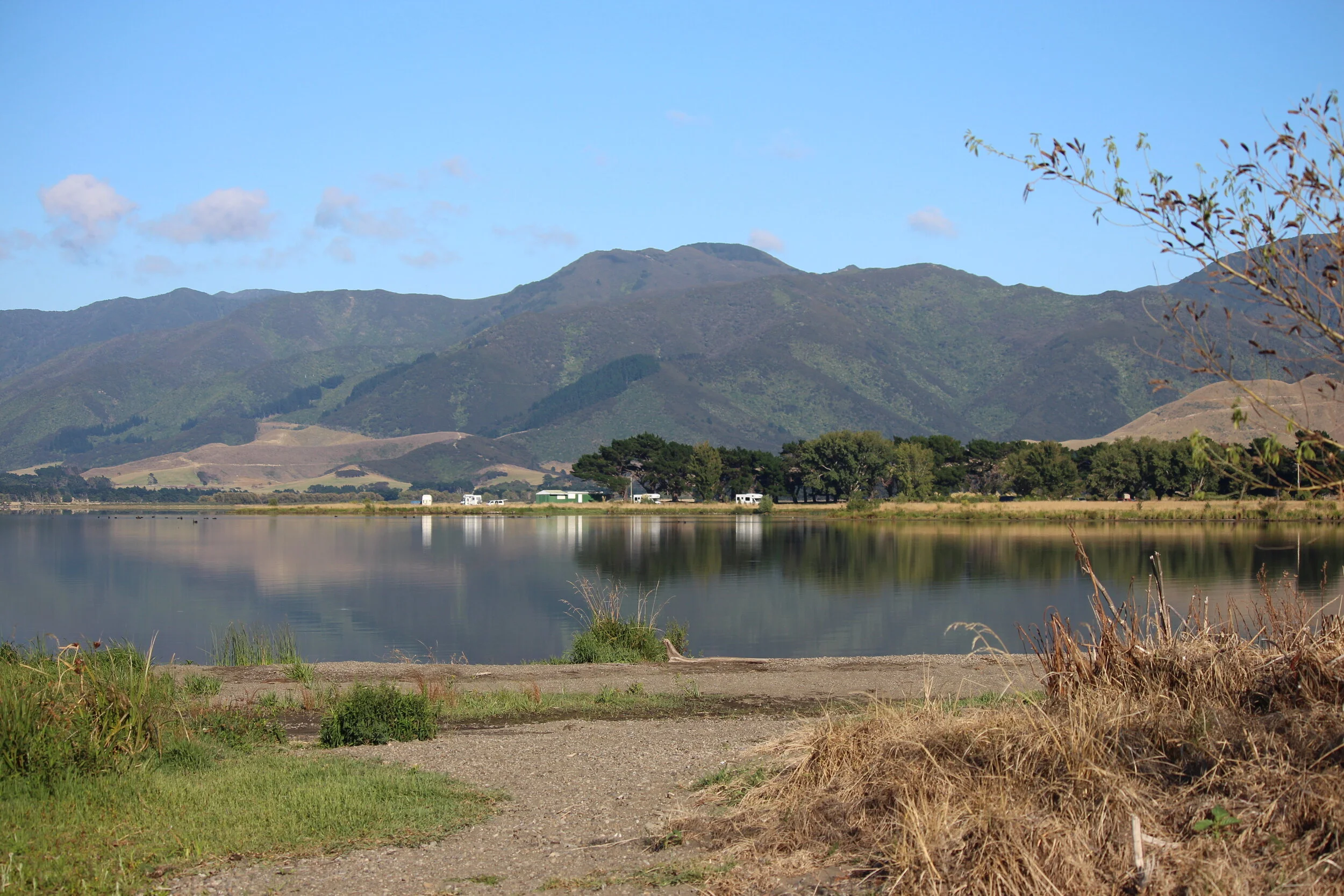An interview with Lake Wairarapa
This kōrero (story) was written by Rawiri Smith (Ngāti Kahungunu ki Wairarapa)
Interviewer: Kia ora (hello) friend, how have you been doing lately?
The Lake: I’ve been better
Interviewer: Do you mean you were better back in 1840?
The Lake: Yeah 1840 was good, but 1940 wasn’t too bad either.
Interviewer: What’s been wrong?
The Lake: I’ve been a bit under the weather.
Interviewer: Any weather in particular?
The Lake: Yeah the winds have been a problem. They just get me stir crazy. All the sediment gets suspended and I can’t get enough sun. Some people have described it like a skin irritation.
Interviewer: But you’ve always had a lot of wind around you? And the sediment means that the blue complexion or sunny times have always been few.
The Lake: Yes you can say that, but if it was like a skin allergy then the flooding was like a cool ointment that would allow a clearing of the problem.
Interviewer: The skin complaint would come back in the old days though, wouldn’t it?
The Lake: Yes but there was some relief. Now there is no relief.
Interviewer: What other things do you miss from those days?
The Lake: I miss my old friend, the Ruamāhanga and how we would meet.
Interviewer: But that was the problem wasn’t it? Sometimes when you met there would be water for miles and it would end up in tears for the people who lived around you.
The Lake: Yeah, now and then there was a great meeting of all the waters that would flood right back to Papawai. That’s how that place got its name. The fern that grew there would enjoy wet feet, so it loved the wai (water) and the papa (soil). There would be lots of plants who enjoyed the repo (wetlands). The giant kahikatea (white pine) as a popular likeness. My friends were a tribe back then. They were everywhere. Now those sheltering friends have gone
Interviewer: The people were affected too, weren’t they?
The Lake: That was the difference between the 1940s and the 1840s. It was the people. In the 1840s the people lived with the hinarangi or floods and their mahi or work) was mahinga kai or food gathering. After the 1940s I couldn’t lie down and spread out because the people then had sheep. The sheep aren’t as good at swimming. Just recently though I have been having more people coming to see me
Interviewer: Why have they been coming to see you?
The Lake: They’ve been doing some tests. They reckon I can have a better life style.
Interviewer: What do you reckon?
The Lake: I hope they’re right.
ABOUT THE AUTHOR
I am an uri of Wairarapa. That is more than people, outstanding people. I am descended from explorers like Kupe, Whatonga and Tamatea Ariki; the priestly Popoto, Ruawharo and Tupai in the waka kōrero; the whare wānaga professors include Matorohanga, Nukutamaroro and Nepia Pohuhu; hapū leaders like Taaneroa, Moeteao and Hintearorangi. Then there is the ancestor who brought peace, Rongotaketake, Nukupewapewa. I am humble to descend from Gods, Io, Ranginui, Papatūānuku are familiar as is Tāne, but other atua like Hinemoana and Rongomaiwhakateka too. This context means I descend from the land and the waters, including Wairarapa Moana. I am Rawiri Smith.

